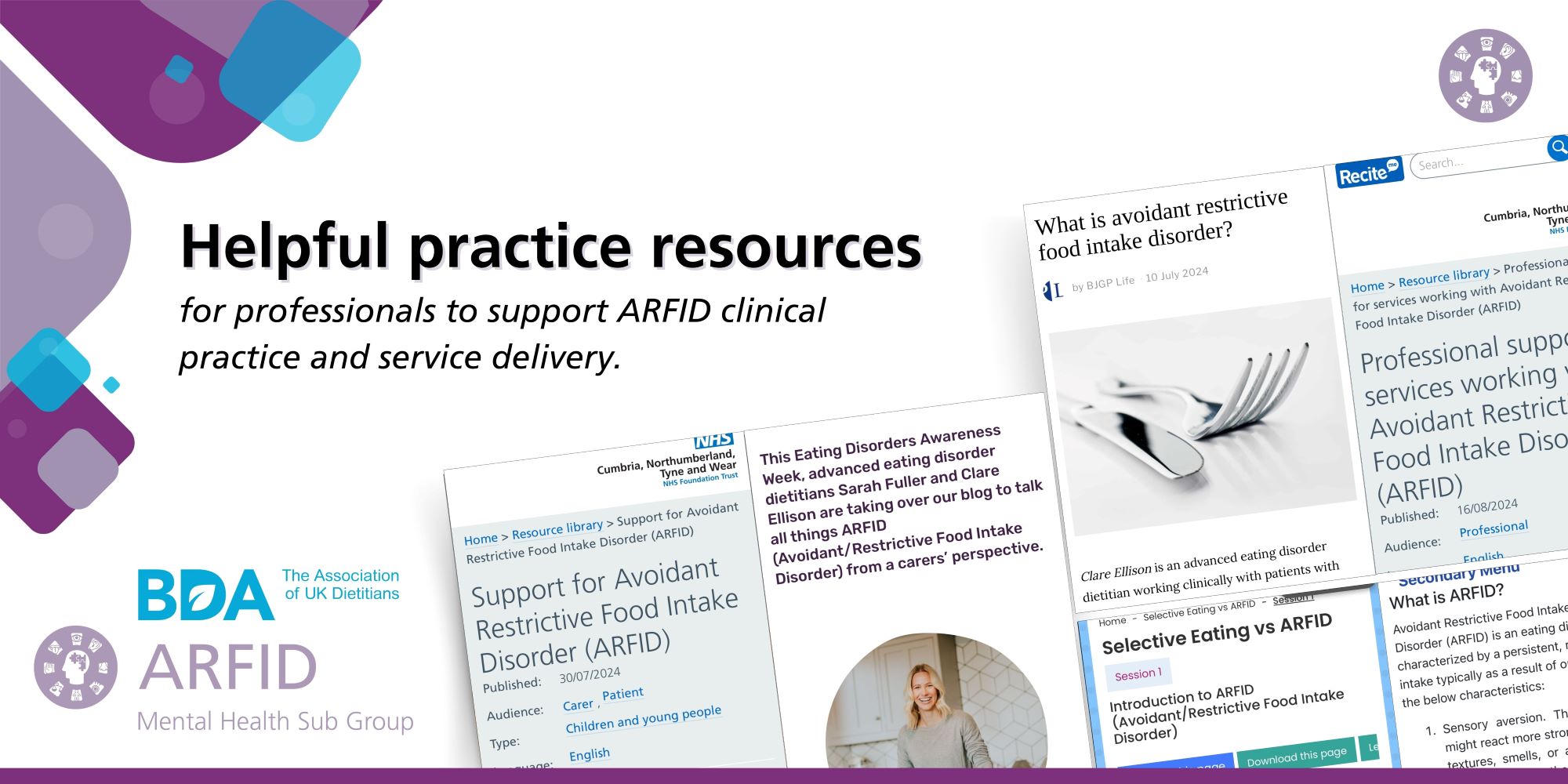
Our committee members are dedicated to supporting ongoing practice developments for ARFID clinicial management. This includes our own BDA developments, as well as actively shaping those in our own work places or across other regional and national projects. We also ensure we keep up-to-date with information or developments from outside our committee that our members may find useful.
Here you'll find a range of resources for you to use. These are not official BDA projects, but they are endorsed and co-produced by members of our committee and we're delighted to share them with you:
- This example ARFID assessment form has been endorsed by the BDA ARFID Comittee as a comprehensive example of a multi-professional, mental-health-based ARFID assessment form for children and young people. The form may be used in its entirely, though it includes several prompts and expansions to act as a learning aid. In this way, it may be better suited to being used as a learning aid for services to consider when designing their own. It is hoped that we will be able to share more examples (such as for dietetic only services, paediatric settings, adult clients and those with a learning disability) in time and as these are developed.
- Our committee supported ARFID severity matrix (for children and adults) can be used to support developing a common clinical language for understanding the severity of ARFID clinicial presentations. We have also created supplementary support tools to aid it's clinical use. It is currently undoing a research process.
- Our committee supported practice suggestions for supporting helpful acute admissions for those sensory restrictive eating difficulties across the ages gives practical tools and advice, as well as example re-feeding plans for those with ARFID or sensory restricive eating difficulties admitted to an acute ward. Our patient version is also available as an admission passport to support autonomy and promote positive admission experiences. These documents are currently being expanded and we're aiming to bring you versions for use in sensory-sensitive anorexia presentations too - watch this space!
- This website is created for professionals and includes a range of co-developed resources to support clinical service delivery as well as extensive signposting. Here you'll find details about education modules, pathway development and links to outcome measures. You'll find committee written articles for primary care (in the British Journal of GP's) as well as a GP 'decision tree' tool for first presentations in primary care. These could be helpful for you to share with your colleagues.
- This website is created for patients and families living with ARFID. It includes an original multi-professional webinar series and 8 original patient/family resources which have been created by our comittee members. The site links to the comitteee-produced webinar series from the Welsh Health Board, and the comittee member co-produced guided self-help pages at BeBodyPositive. Lastly, the site includes substantial information including committee co-written articles with the national charity Beat, and signposting to support patients and families in finding credible sources of further information and help.
- This resource from The Feeding Trust helpfully describes the differences in presentations between Paediatric Feeding Disorders (PFD) and ARFID
If you are aware of any practice resources you'd like to share with the community which aren't listed here, please email: [email protected] - we'd love to hear from you and give you a platform to share your excellent work!

